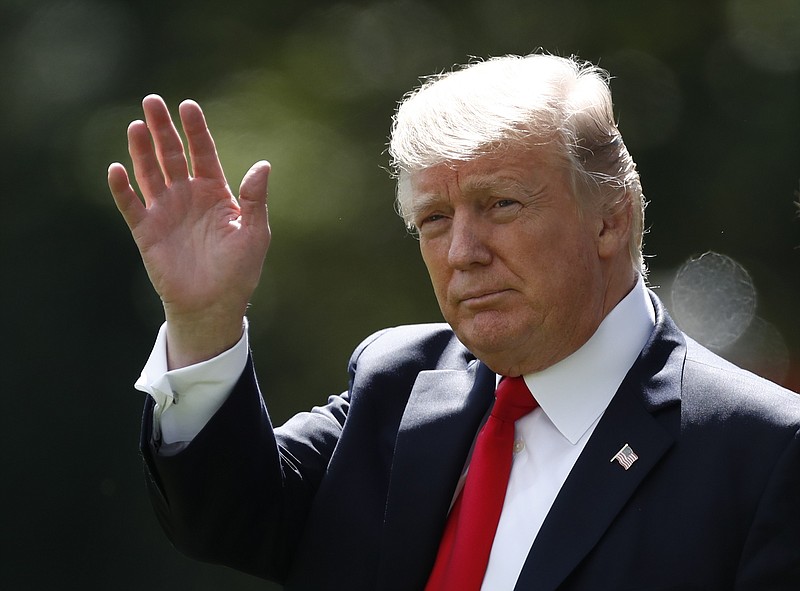America faces two serious national security threats today that look wildly different but have one core feature in common - they both have a low probability of happening, but, if they did happen, they could have devastating consequences for our whole country and the world.
One of these threats is called North Korea. If the reckless leader of North Korea is able to launch an arsenal of intercontinental ballistic missiles that strike the U.S. mainland, the effect on America will be incalculable.
And even though the odds of that happening are low - it would be an act of suicide by the North Korean dynasty - President Donald Trump is ready to spend billions on anti-missile systems, warships, cyberdefenses, air power and war games to defuse and deter this North Korean threat.
And if we prepare for a North Korean nuclear attack and it never happens, we will be left with some improved weaponry that we might be able to use in other theaters, like fighter jets, ships and missiles - but nothing particularly productive for our economy or job creation.
The other low-probability, high-impact threat is climate change fueled by increased human-caused carbon emissions. The truth is, if you simply trace the steady increase in costly extreme weather events - wildfires, floods, droughts and climate-related human migrations - the odds of human-driven global warming having a devastating effect on our planet are not low probability but high probability.
But let's assume for a minute that because climate change is a complex process - which we do not fully understand - climate change is a low-probability, high-impact event just like a North Korean nuclear strike. What is the Trump team doing when confronted with this similar threat?
It's taking a spike and poking out its own eyes. In possibly the most intellectually corrupt declaration of the Trump era, Scott Pruitt, a longtime shill for oil and gas companies now masquerading as the head of the EPA, actually declared that even discussing possible links between human-driven climate disruptions and the recent monster storms was "insensitive." He said that after our country got hit by two Atlantic Category 4 hurricanes in the same year for the first time since records have been kept - storms made more destructive by rising ocean levels and warmer ocean waters.
Frauds like Pruitt like to say that the climate has been changing since long before any human drove a car, so how could humans be causing climate change? Of course they aren't solely responsible. The climate has always changed by itself through its own natural variability. But that doesn't mean that humans can't exacerbate or disrupt this natural variability by warming the planet even more.
That is why I prefer the term "global weirding" over "global warming." The weather does get warmer in some places, but it gets weird in others. Look at the past few months: Not only were several big U.S. cities slammed by monster hurricanes, but San Francisco set a heat record - 106 degrees on Sept. 1, a day when the average high there is 70 degrees; the West was choked by record-breaking forest fires exacerbated by drought; and South Asia was slammed by extraordinarily harsh monsoons, killing some 1,400 people.
But what if we prepare for disruptive climate change and it doesn't get as bad as feared? Where will we be? Well, we will have cleaner air to breathe, less childhood asthma, more innovative building materials and designs, and cleaner, more efficient power generation and transportation systems - all of which will be huge export industries and create tens of thousands of good, repeat jobs.
Trump has recently fired various knuckle-headed aides whose behavior was causing him short-term embarrassment. The person he needs to fire is Scott Pruitt. Pruitt is going to cause Trump long-term embarrassment. But instead, together they are authoring a new national security doctrine - one that says when faced with a low-probability, high-impact event like North Korea, the U.S. should spend any amount of money, and if the threat doesn't materialize, well, we'll have a lot of Army surplus and scrap metal.
But when faced with an actually high-probability, high-impact threat called climate change, we should do nothing and poke both our eyes out, even though if the effect is less severe - and we prepare for it anyway - we will be left healthier, stronger, more productive, more resilient and more respected around the world.
That is the Pruitt-Trump Doctrine - soon to be known as "Trump's Folly."
The New York Times
